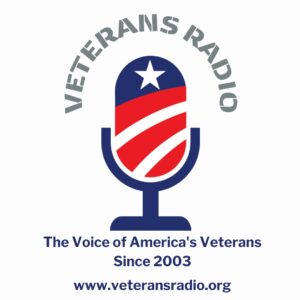Michael Monsoor
Medal of Honor Recipient's Story of Overcoming Obstacles and Sacrifice
Transcript of Veterans Radio Interview with Author Rose Rea (January 10, 2023)
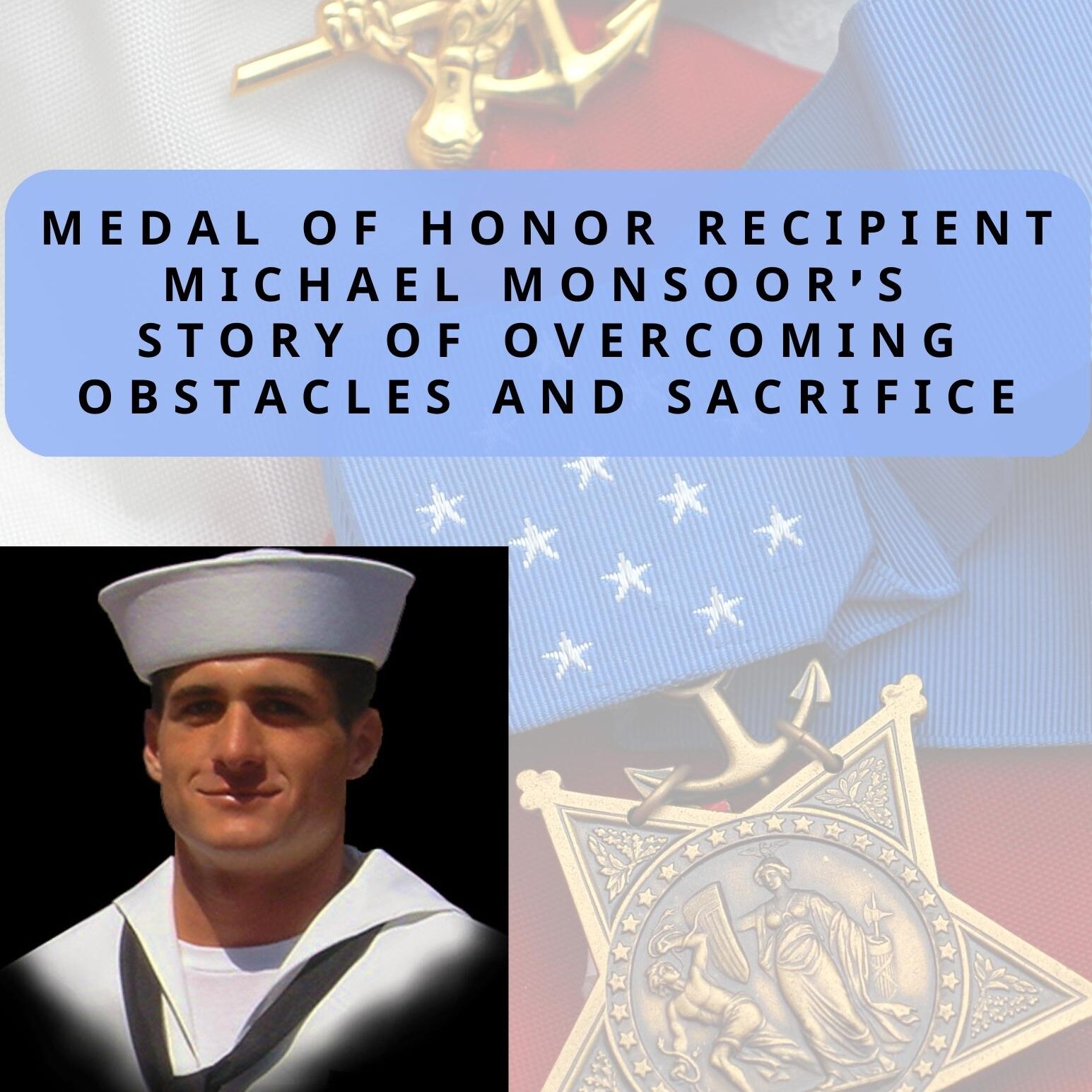
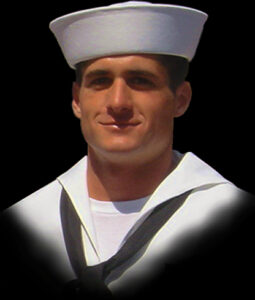
On September 29, 2006, Michael Monsoor and three SEAL snipers watched vigilantly for enemy activity from a rooftop post in Ar Ramadi, Iraq. When a grenade thrown by insurgents bounced off Michael's chest, he could have escaped. Instead, he threw himself onto the live grenade, shielding his fellow soldiers from the immediate explosion. Michael died thirty minutes later, having made the ultimate sacrifice.
George Monsoor (Michael's father) and Rose Rea detail in their book, "Defend Us in Battle", Michael had prepared for this selfless act his whole life - a life that inspires us to have a similar generosity of heart.
In the following transcript, Veterans Radio host Jim Fausone talks with Rose about Michael, his family, his faith, and his sacrifice.
Jim Fausone: We want to welcome to Veterans Radio today, Rose Rea. She co-wrote a book with George Monsoor. George's son, Michael, is a recipient of the Medal of Honor and we're going to tell Michael's story. Most of you probably have never heard of it, and we're going to tell it a little bit because Rose went through talking to all of his buddies in the Navy. Let me set this up a little bit. Michael Monsoor joined the United States Navy in about March of 2001. Like many kids, he wanted to test himself and be the best he could in service and made his way through BUD/S and became a Navy SEAL in March 2005. The action for which he ultimately received the Medal of Honor occurred in September 2006 when he was on a rooftop post in Ramadi, Iraq and we'll tell that story. Rose, how did you get involved in helping write and shape this book?
Rose Rea: Yes, it is a powerful one. Thank you so much for having me and for filling your listeners in a little bit. I've done a lot of projects. I've been in the industry for about 15 years now, and nothing has been as meaningful to me as Michael's story - to really kind of uncover it and now share it with the world. The reason I learned a little bit about it is my husband is an active-duty SEAL. He's heading into his 20th year of service this summer. It's been a very colorful and challenging life to live, but we're so grateful for our military men and women that serve us. He was at SEAL Team 3 when they commissioned this absolutely breathtaking missile-guided destroyer - they call it a super stealth missile-guided destroyer - that was named after Michael Monsoor. There is a lot that goes into naming the ship. I had no idea.
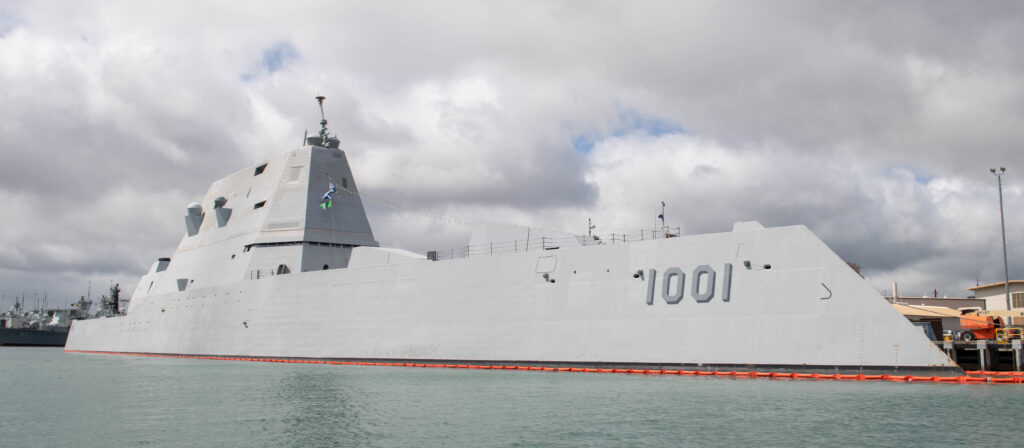
Fausone: Yes and it's a huge honor. The Navy has its own traditions. But there was more of a story there.
Rea: Right. So my husband brings this book home and there's one paragraph - that's all it was - one paragraph. It said who Michael Monsoor was, a little bit about him - just a titch - and something went off in my being, and it was like you've got to tell this boy's story. And that's what it is. He was a boy. He was 25 years old. And I'm like, who is this? From there, God willing, I had the connections because I was a SEAL wife and I was able to reach out to Naval Special Warfare and they put me in touch with Michael's parents.
They said no to me Jim, for two years, because they're so private. Bless their hearts. They had been through enough. They had lost their son and it's been a lot. However, I was patient but I just kept nudging and saying this is such a profound story. People need to know what he gave for his country, what he gave up willingly and so that started everything. George eventually said okay, let's do it. We worked hand-in-hand and one by one with his teammates. It was such an honor and they felt safe with me because I wasn't just a reporter. I wasn't just a random person off the street. I was part of their community. I think that was the way that it was always meant to be. I feel so honored that I was able to play a small role in now bringing his story to the world because George told me one of the reasons that finally got him to say yes was he said my son was so much more than just a boy who jumped on a grenade because that's what the average person in the public knew him as. This story is so incredible so it really gives people a perspective and a glimpse into who was this boy that made this split-second decision that changed lives forever.
Fausone: There are a number of lessons, and I think we hold these men who receive the Medal of Honor so highly that we can learn some lessons. In the book, "Defend Us in Battle: The True Story of MA2 Navy SEAL Medal of Honor Recipient Michael A. Monsoor". One of the lessons here that I think folks learned, and it's kind of interesting, is Michael had asthma as a kid and had to overcome all the medical challenges that go through childhood when you can't breathe when you have an asthma problem. You talk in the book about how he got into sports - hockey and football - and pushed himself to overcome this medical challenge. I think there's a lesson for all of us here, isn't there?
Rea: It's so true. I don't think any of us can sit back and think oh it's so easy for everyone else, but it's hard for us to see past our own difficulty sometimes. When we're able to read about someone that we would aspire to be or someone who's done something really incredible it is just inspiring. Michael fought and fought and fought, even since he was little, to beat his ailment. He never gave up. He had this unbreakable little will at such a young age and it was so inspiring. Even before I jumped into really writing the story, I had no idea that he quit BUD/S once. Being the wife of a SEAL, quitting is the worst thing you can ever do, and Michael quit.
Fausone: I think that's one of the lessons, right? We all hit those challenges in life and it's so easy to ring the bell which you do to get out of the BUD/S and SEAL training. You quit. But he didn't give up, he quit but he didn't give up.
Rea: I think that is one of my favorite parts because even thinking about writing those words. I mean, you can imagine Michael who gave everything he had to have to hang up and quit and ring that bell and be viewed by all of his classmates as a quitter. I mean that's crushing. But, he didn't give up. He went back.
Fausone: And again, that's the lesson to learn. Don't consider yourself a loser. Figure out what you need to do to get better and get through that challenge. You tell the story of Michael improving himself and getting through BUD/S. He graduated in September 2004 and joined SEAL Team 3 in 2005. You got a chance to talk to his Navy buddies before he became a SEAL and importantly after he became a SEAL and served in Iraq. Tell us about finding those guys and in some measure pulling the stories out to make "Defend Us in Battle."
Rea: Jim, I was able to interview the childhood friend, who also became a SEAL which is so cool - behind-the-scenes little tidbit there. Michael definitely inspired him in that, Michael was a SEAL first. Michael inspired and looked out for his friends his whole life. Then you read about these guys in the story when Michael was in Italy and he was in this waiting pattern to go back to get a second chance. We put in the story what he told his mom or brother - he said you'll have to drag my dead body off the beach before I quit again. There was no other option for him. I just thought that was so incredible. You see those friendships that were deep in there. I mean this really is a story about Brotherhood and father/son. A relationship through how much they loved each other and then this brotherly love which ultimately grows and grows and then at the end, but after you saw how much he cared about his fellow squadmates didn't it almost make sense at the end as devastating as it was.
Fausone: I think that's the bonding that occurs that maybe the civilian population doesn't necessarily appreciate.
Rea: I don't think we'll ever understand, Jim. Only you guys, only the men, and women who have served in these stressful situations can attest something happens. Some sort of bonding and love of your fellow man deepens in those situations.
Fausone: One of the things you talk about is as Michael was going through and became a SEAL, he wanted to go on to sniper school. Talk a little bit about the role and responsibility that goes with being that automatic weapon operator.

Rea: It's no small thing. The guys talk about the weight you carry, the extra weight. I feel like it was about a hundred pounds extra the guys were telling me from bullets from his SAW Gun, which you probably could go into more specifics about, but I meant it was a huge automatic weapon. This gun is nicknamed "The Pig" because of its squealing sound and because there's so much force when they're shooting it. Michael just took all that on and he was never one to back down from anything. In fact, he would continue to agree to do more. I remember his mom telling me she said, "Michael you can't do everything," because he just continued to carry the extra load, the extra weight. And then he had communications equipment. He took a lot on and it says a lot about his character.
Fausone: He was the automatic weapons operator carrying the MK-48 and all that extra weight, there's a responsibility to the other guys because you're carrying that weapon to protect them. As you tell the story in "Defend Us in Battle," it seemed like the guys knew he knew he was taking on this extra responsibility to have their back. Did you get that sense?
Rea: Yes. And look at also the actual battle scenes in there were actually taken from after-action reports. It wasn't like someone said something, I meant these really happened. Exactly with that weapon, he was providing cover fire. How many times? Multiple times that we shared in the book. And because of that, his men were able to get to safety. The other thing, not everyone's going to understand the gravity of this, but he was a new guy. New guys are like the bottom of the barrel, right? All of the older guys get fun jobs. The new guys still can do some fun things, but for him to step into this role and provide such wonderful, tactical awareness and to do his job so well, it was just a huge, huge testament to him throwing himself in and giving his all. Not everyone can step in and do it that well, that fast.
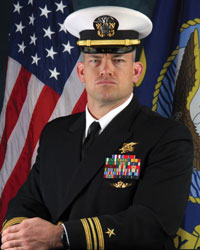
Fausone: Again, it's one of those things that demonstrates his character. A couple of other things that I think go to his character, which ultimately leads to him making the ultimate sacrifice, his commanding officer in Ramadi in the Spring of 2006 was Lieutenant Commander Jocko Willink. Jocko is widely known today as a lecturer, coach, podcaster, and personality about the war in Iraq. He is a real leadership guru and was at the time. I think Michael probably got some of his good leadership principles from following along Lieutenant Commander Willink.
Fausone: Another person in the book that I think reflects Michael's character is Father Halladay. Can you talk to us a little bit about learning that part of the story, which I suspect his parents knew nothing about when he was over in Iraq?
Rea: Yeah. They really didn't - it was definitely something. Michael was so quiet. His parents had no idea that he was operating on a nightly basis and the type of danger that he was in. He really wanted to protect them. I can't speak for him, but I assume that's why he kept it to himself. Michael obviously knew what was going down, as he was operating on this nightly basis. He was Catholic and he found this incredible priest. I've met him and interviewed him and now I get it. I know why Michael continued to foster this relationship. He's such a cool dude, he's so masculine, so strong, and he was there. He was there to offer him whatever assistance Michael needed. Really what Michael appreciated over there was strength. Strengthening him to do his job was the sacraments - what Catholics use as a Sacrament. It was communion, it was Eucharist, it was confession. The sad thing is that Michael was ready to die at any time and I'm sure a lot of those guys were, Jim. It was this cool relationship, almost this Brotherhood camaraderie too, between this Navy chaplain priest and Michael.
Fausone: I've had the chance to write on and interview a number of chaplains. These men who are in the field with the Warriors give great counsel, and great solace. It's not always a religious thing, sometimes it's just that you have somebody safe you can express your fears with. Those chaplains of whatever denomination are doing great work with our men and I was really interested to read that Michael Monsoor, this Medal of Honor recipient, had that kind of relationship with that kind of chaplain when he was in Iraq. As suspected, his parents wouldn't have known about it but probably gave them great comfort once they learned.
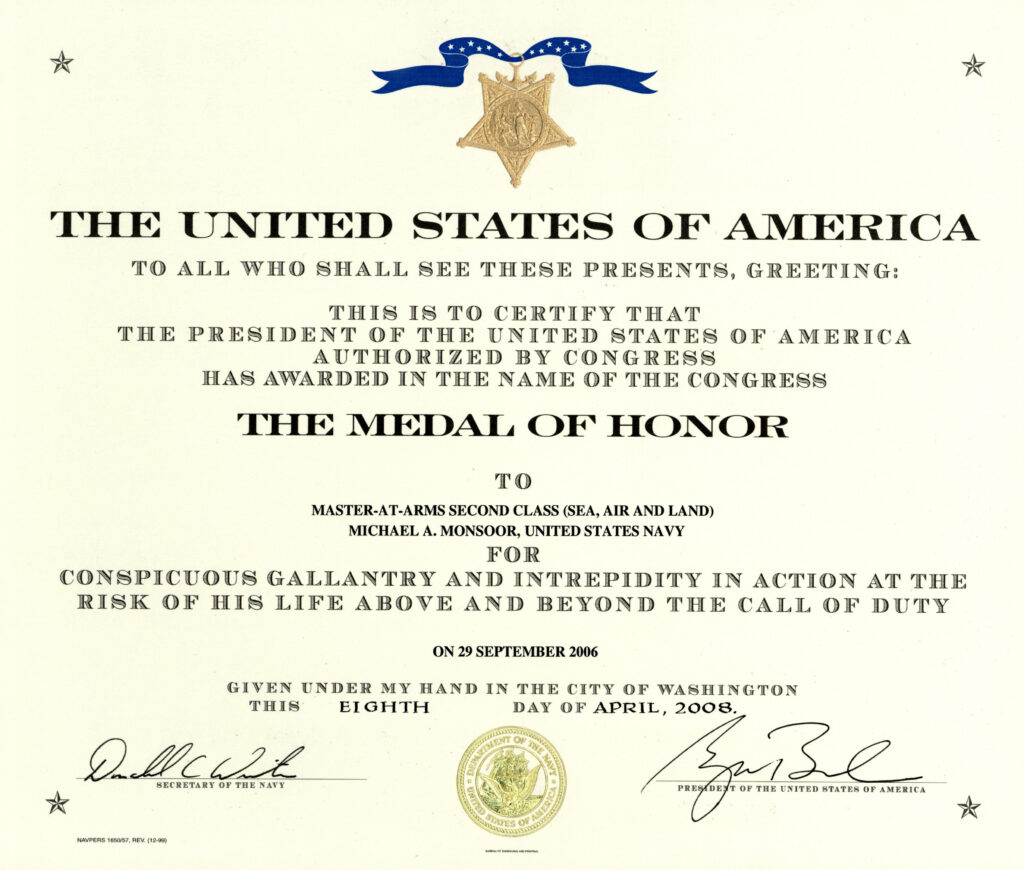
Rea: It did after and he was able to say that to them when they met him after he had passed away. He said he died in the state of grace and for what Catholics believe, with the sacraments and what else. And then, as you know, at the end of the book who says that powerful prayer at the end, who's able to be there and the huge commissioning of bringing his ship to life but Father Paul Halladay. They flew him back over to do the honors. I thought that was just so powerful.
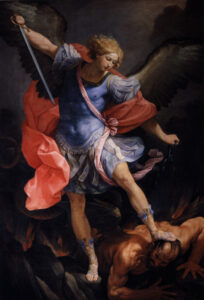
Fausone: Well sometimes this arc is just perfect, and I think that was a good example of it. You record a conversation that George told you he had with Michael. But George got to talk to Michael and tell him, "Hey, don't be a hero" and Michael responded, "I have no regrets." A couple of powerful statements.
Rea: I know. And from a mother's perspective, it's heartbreaking. It really is, because all you want for your child is a long life, happiness, is comfort. And Michael turned all of that away, Jim because he believed in a bigger ideal. So George got to talk with him about sacrifice. It's so painful, but George knew his son was set to do this, was set to go to this war-torn area and he wasn't afraid. He was not afraid.
Fausone: Go ahead and set us up for what happened on September 29, 2006 when Michael and three other snipers were there. I want to point out, it also happens to be Saint Michael the Archangels Feast Day. As we bridge this, Father Halladay, Michael's faith, and the family's faith. Tell us about this day that will always be remembered.
Rea: Michael had a crazy deployment and super high tempo operating throughout the whole thing, and then they were finally starting to wind down after about six months. Michael, being the man that he was, was aware of everything going on around him. He knew some of these guys were going home early, it's called turnover. So the majority of the platoon will get ready, they'll pack up, they'll get things on their containers to head home and they'll start getting ready to phase out and the new team will come back in.
So, Michael willingly volunteered to stay and continue operating. One of his platoon mates was having a baby. He wanted him, and to make sure anyone else who wanted to would get home, so he stayed. This was one of the last missions, which is just even worse.
He was operating with I think eight of them total left out of a normal size of 15 to 20. They divided into two groups of four and they were providing bounding sniper overwatch for their Brothers in Arms. It was the Army, the first of the 506 Battalion.
They were down below, I think they're reinforcing some fencing with security measures and whatnot and then Michael and the other SEALs were on rooftops. He had three SEALs with him and I think there's one or two Iraqi interpreters. A very uneventful day at first, Jim.
But then they started to take fire which happened pretty fast, and ultimately, a grenade was thrown on the rooftop. Michael was the closest one where he could have jumped away from it, but the other three could not have. In that split second, which is all that he had, he jumped on top of it and shielded the blast with his own body. He lived for 30 minutes longer, they were providing aid as fast as they could. They got him evacuated off the rooftop, and got him as fast as they could back to base, but that's where he passed away. All of the rest of the men, three SEALs, and the Iraqi interpreters, survived because of what Michael did for them willingly.
Fausone: And he gave them a gift, just like he gave a lot of people who have heard the story this gift. You have to ask yourself what makes a man do this. It's really a selfless sacrifice and you end up giving this gift to those who are spared. You had a chance to talk to some of these men. Kind of related to how that gift continues to ripple forward.
Rea: So, so powerful. It's still hard for the men he saved - I would say 100% they feel a sense of guilt. Because why my brother and not me? On the flip side, such gratitude. They are willing to go to the ends of the Earth. Mike Cirelli, one of the men he saved, named his son Michael Anthony after Michael Anthony Monsoor. Actually, there is a neat little memorial section in the back of the book that, yes there are these incredible memorials to him, but what I thought to point out is that the most powerful memorials right now are of all the sons of the brothers he saved who were named after him. So many guys have named their kids after him because they just loved him so much. And then it just goes on from there, with the building of this ship. You had middle school classes want to make videos and learned about his story. You had winemakers make a special wine for him. They made him an honorary Chief because if he was alive, he still would have been. The guy who made this special box - almost like a shadow box, but it's a decorative box - he said, "No I want to do this, don't pay me a cent. It is my honor to make it for him." There were so many situations of people who are so moved by his act of charity that they too want to make an act of charity. To this day, they still blows me away.
Fausone: "Defend Us in Battle" is on the Harper Horizon imprint. When I started reading the memorials at the back of the book, I could feel how meaningful different memorials would have been to Michael. More importantly, how different groups whether it be at Fort Campbell or at Pendleton or in Norfolk, at churches, how wanted to make sure his name and his story in his sacrifice continued on. So I thought it was a nice touch to add that all in. We've talked a little bit about the reaction to this sacrifice, but does the family feel that the sacrifice going forward in a ripple effect, will that continue to go forward? Give us a little bit about how George is thinking about this, how the rest of the family is thinking about this?
Rea: Well, they're super private, so even the children are not a big fan of media and they didn't want to really be involved in this book at the time. Not out of any sort of reason other than just letting us be. We're his siblings, just let us be. I thought that was beautiful and respectful. I think in today's world people want to... Exploit isn't the right word - that happens right? People want to know everything all the time. There's a healthy level of mystery or privacy. Let's let certain things be, right? Those memories will always be within those children, which I love. Just let them have their brother. And then from George and Sally's perspective, knowing bits and pieces people do know. The thing is, for these boys who served with Michael, this matters to them, too, because their children want to know who Uncle Mikey was. Who was I named after? Not everyone has made a comprehensive story yet, so the sacrifice lives on I think in the sense of these guys and his parents. And even the siblings of course, because they don't know all the operations he went on either. They weren't Navy SEALs. So it just marries together so many wonderful stories and memories. I think George will fight for his son and stand up for his memory his whole life. Sally recently passed away, and they were married for 49 years, so that is very heartbreaking. What we do have preserved in the book are all those stories she shared, gems, so many she hadn't shared with the world.
Fausone: I think again, another very important part because of a mother's concern and pain you sort of mention. Her prayers for her son are just a reflection of what every mother is doing when their boys are overseas, or daughters are overseas. Again, a great story about a terrific young man who made the ultimate sacrifice for his mates - a selfless act. It does cause you to say, every time I read one of these stories, how do you do that? Who has the courage to do that?
We're talking to Rose Rea and she wrote the book, "Defend Us in Battle," with George Monsoor who's the father of Navy SEAL Michael Monsoor, who received the Medal of Honor from President George Bush back in 2008 for his actions in 2006 in Iraq. Rose, thanks for bringing this story to life and adding it to the library of literature on Medal of Honor recipients.
Rea: It was my pleasure and it's been such a joy speaking with you. Thank you for all that you are doing to bring awareness to our wonderful veterans.
About the Author
Jim Fausone is a partner with Legal Help For Veterans, PLLC, with over twenty years of experience helping veterans apply for service-connected disability benefits and starting their claims, appealing VA decisions, and filing claims for an increased disability rating so veterans can receive a higher level of benefits.
If you were denied service connection or benefits for any service-connected disease, our firm can help. We can also put you and your family in touch with other critical resources to ensure you receive the treatment you deserve.
Give us a call at (800) 693-4800 or visit us online at www.LegalHelpForVeterans.com.
This electronic book is available for free download and printing from www.homeofheroes.com. You may print and distribute in quantity for all non-profit, and educational purposes.
Copyright © 2018 by Legal Help for Veterans, PLLC
ALL RIGHTS RESERVED



